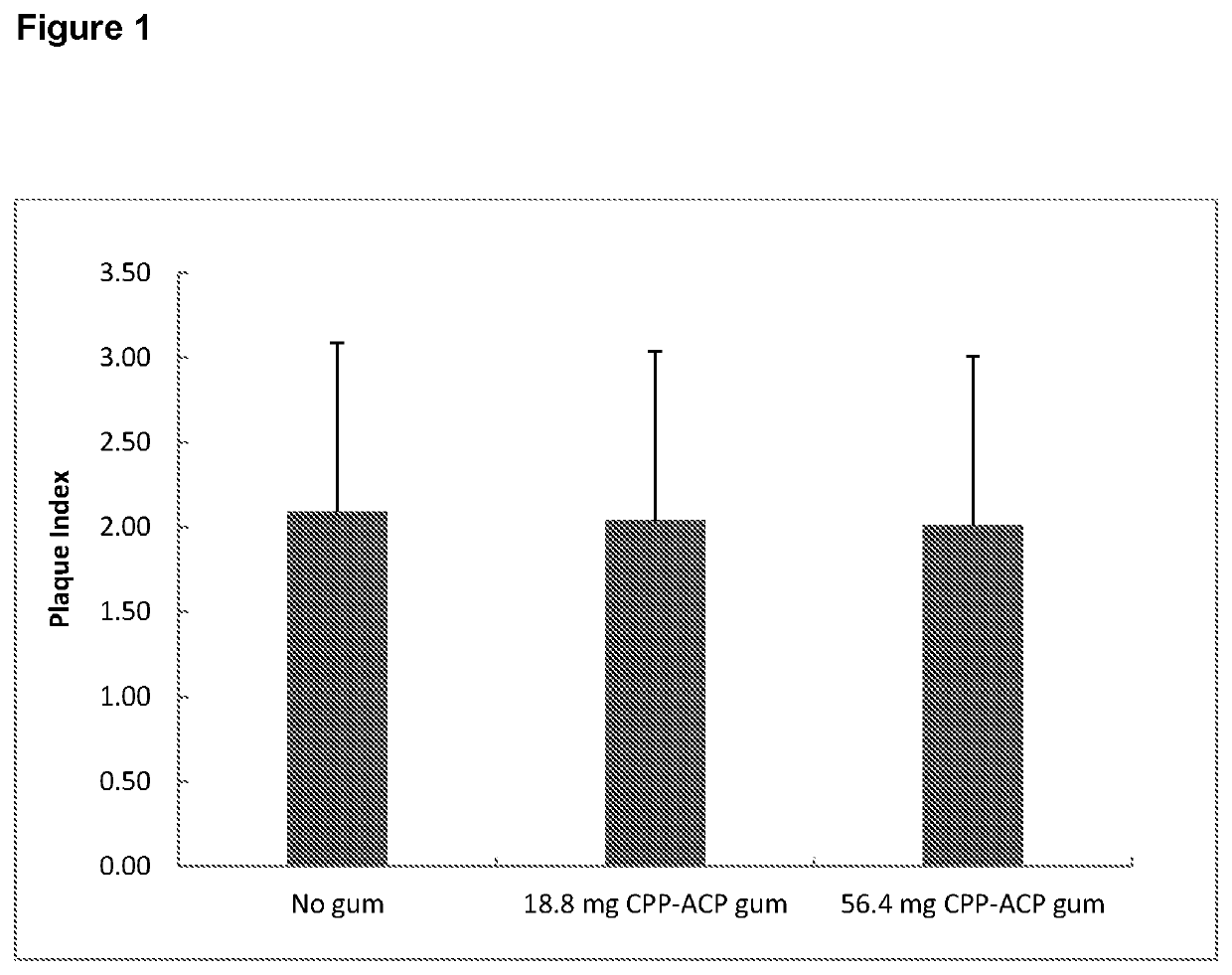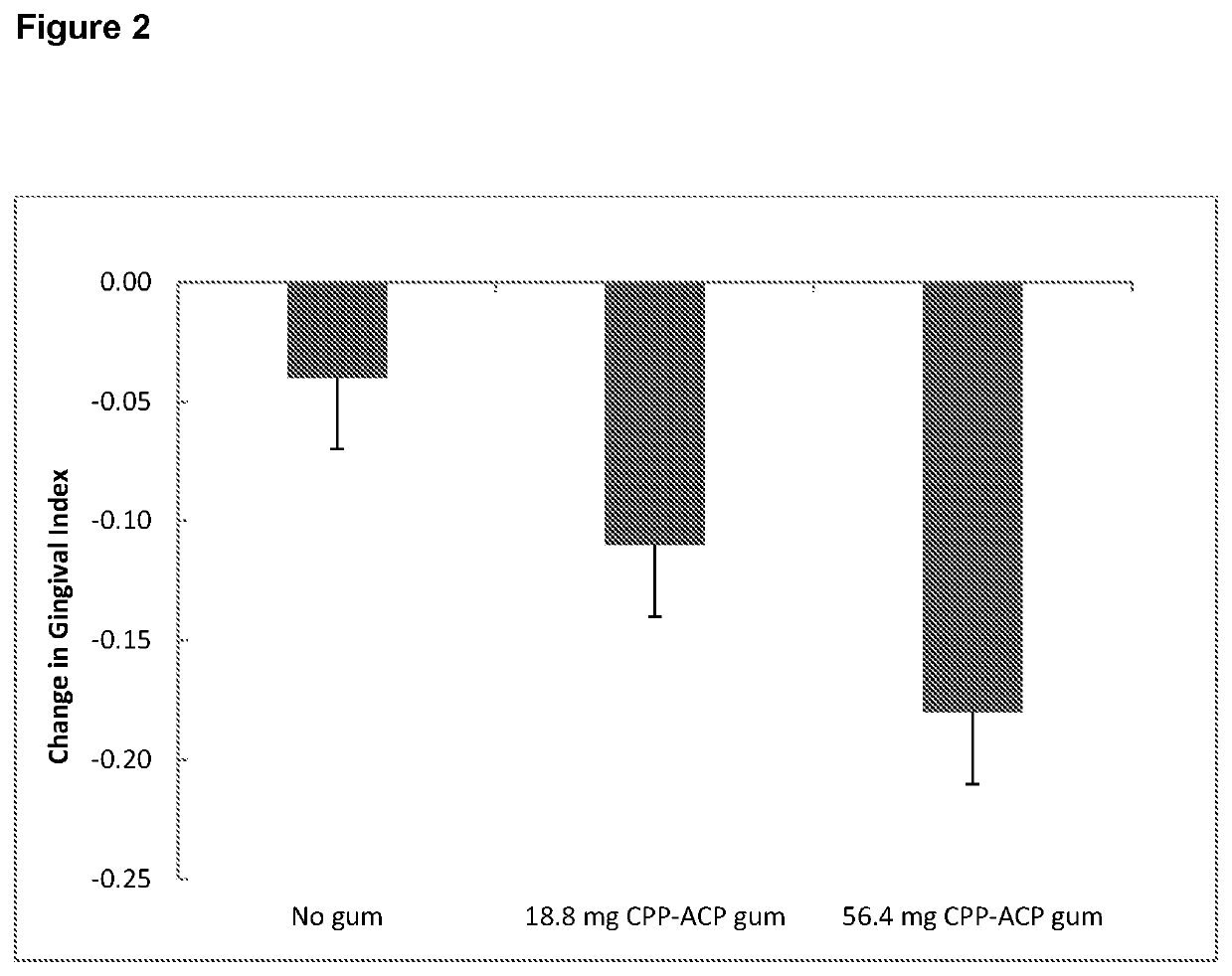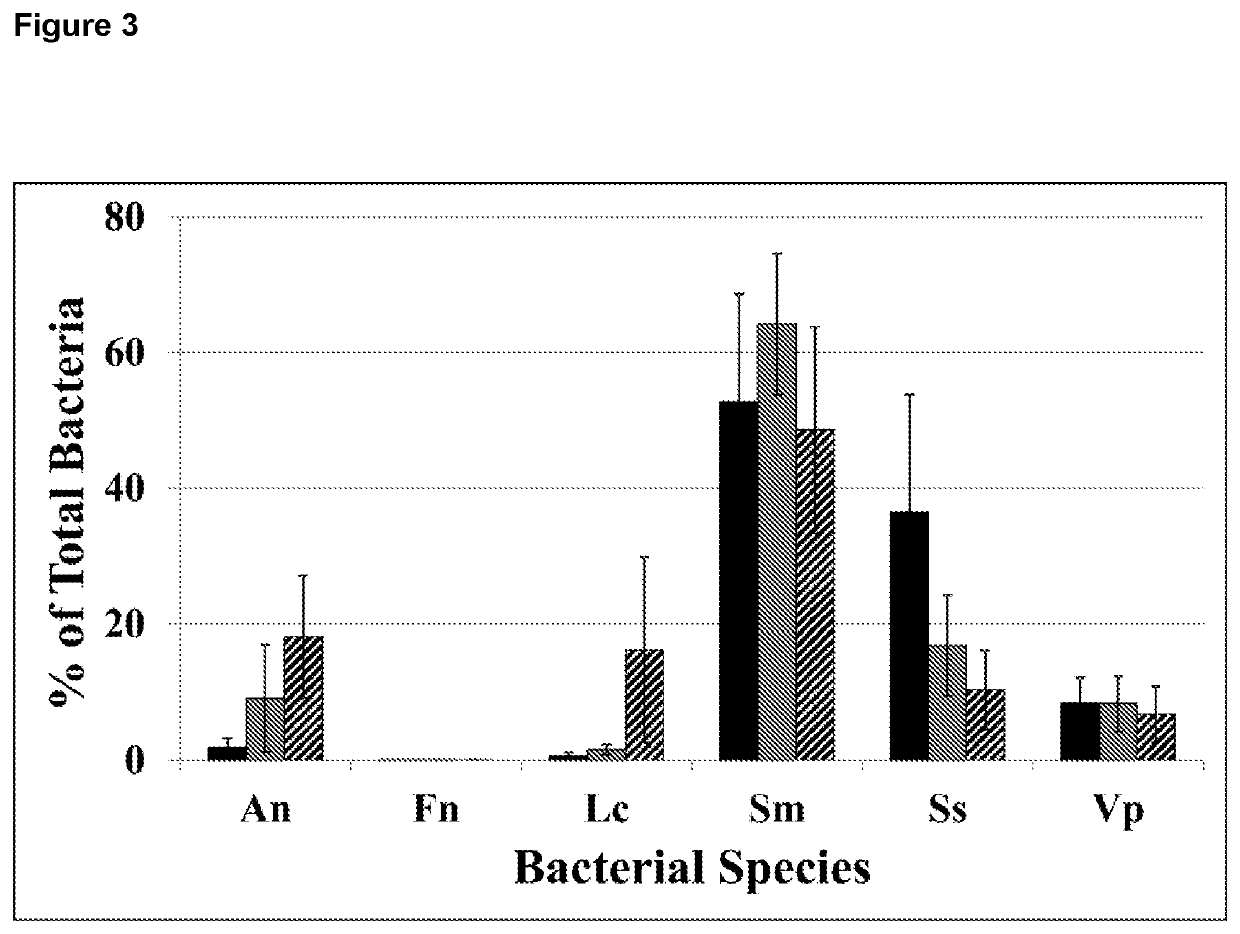Treatment for gingivitis
a technology for gingivitis and treatment, applied in the field of oral care compositions and their use, can solve problems such as detrimental consequences for general and oral health, and achieve the effect of reducing pathogenic bacteria and reducing pathogenic bacteria
- Summary
- Abstract
- Description
- Claims
- Application Information
AI Technical Summary
Benefits of technology
Problems solved by technology
Method used
Image
Examples
example 1
[0202]Clinical Study: Prebiotic Effect of CPP-ACP on Supragingival Dental Plaque and Oral Health
[0203]Study Objectives
[0204]Primary Objective
[0205]To compare the effect of chewing a sugar-free gum containing 56.4 mg CPP-ACP, chewing a sugar-free gum containing 18.8 mg CPP-ACP, and no gum chewing, each in conjunction with normal oral hygiene procedures over 14 days, on the microbial composition of supragingival plaque formed on the maxillary molars.
[0206]Secondary Objectives[0207]A. To compare the effect of chewing a sugar-free gum containing 56.4 mg CPP-ACP, chewing a sugar-free gum containing 18.8 mg CPP-ACP, and no gum chewing, each in conjunction with normal oral hygiene procedures over 14 days, on development of supragingival plaque.[0208]B. To compare the effect of chewing a sugar-free gum containing 56.4 mg CPP-ACP, chewing a sugar-free gum containing 18.8 mg CPP-ACP, and no gum chewing, each in conjunction with normal oral hygiene procedures over 14 days, on development of gi...
example 2
SnF2 Promotes CPP-ACP Prebiosis in a Polymicrobial Model
Multispecies Oral Biofilms Culture
[0302]To model supragingival plaque six representative oral bacterial species, Streptococcus sanguinis (NCTC 7863), Streptococcus mutans Ingbritt, Actinomyces naeslundii (NCTC 10301), Veillonella parvula (ATCC 17745), Lactobacillus casei (NCDO 161) and Fusobacterium nucleatum (ATCC 10953) (Table 5) were cultured as a polymicrobial biofilm on a human enamel substratum in a constant-depth film fermenter (CDFF; Cardiff University, UK). The CDFF was housed in a 37° C. incubator under anaerobic conditions which were maintained by a constant flow of 5% CO2 in N2 at 1 L / h. The CDFF contained 15 removable polytetrafluoroethylene (PTFE) pans on a circular platform that was rotated at a constant speed of three rpm. The biofilms were grown on three enamel blocks (see below) in each PTFE pan using an artificial saliva medium (ASM, 2.5 g / L mucin type II (porcine, gastric, Sigma), 2.0 g / L bacteriological pep...
PUM
| Property | Measurement | Unit |
|---|---|---|
| Time | aaaaa | aaaaa |
| Mass | aaaaa | aaaaa |
| Mass | aaaaa | aaaaa |
Abstract
Description
Claims
Application Information
 Login to View More
Login to View More - R&D
- Intellectual Property
- Life Sciences
- Materials
- Tech Scout
- Unparalleled Data Quality
- Higher Quality Content
- 60% Fewer Hallucinations
Browse by: Latest US Patents, China's latest patents, Technical Efficacy Thesaurus, Application Domain, Technology Topic, Popular Technical Reports.
© 2025 PatSnap. All rights reserved.Legal|Privacy policy|Modern Slavery Act Transparency Statement|Sitemap|About US| Contact US: help@patsnap.com



